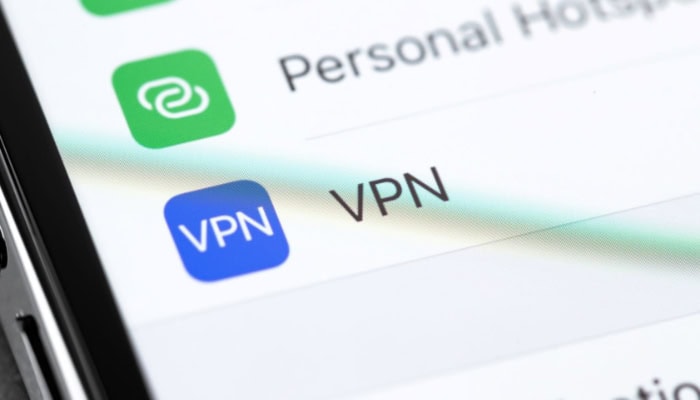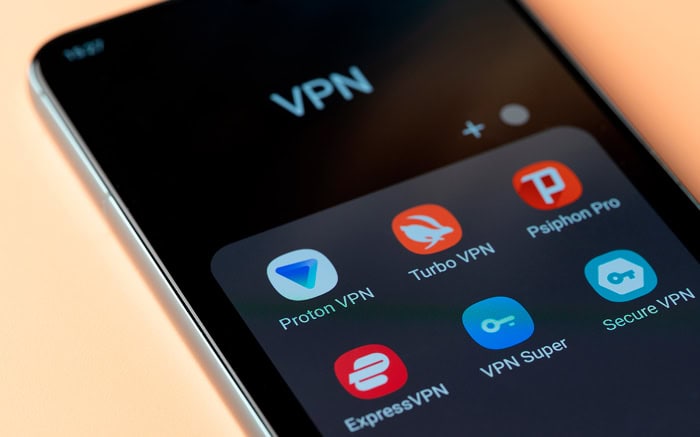What Is a VPN? How It Works & Why You Need It

Complete privacy on the open internet is practically impossible. Your browsing history acts as currency for advertisers while your sensitive information remains vulnerable to hackers on public networks.
A Virtual Private Network (VPN) serves as a necessary shield against these invisible threats. This tool creates an encrypted connection between your device and the web. It effectively masks your actual location and scrambles your data to ensure that no one outside the tunnel can intercept it.
Going beyond simple definitions, we will examine exactly how this encryption process protects your identity and allows access to restricted content. This guide also compares the differences between consumer and corporate options while addressing the realities of connection speeds and provider trust.
The Core Mechanics of a VPN
A VPN functions as a digital intermediary that manages the flow of information between your device and the internet. Instead of sending data directly into the open web where it remains visible to various entities, the software redirects traffic through a secure server.
This process fundamentally alters how data packets travel and how your digital identity appears to the outside world.
The Encryption Tunnel
When you activate a VPN, the software establishes a secure connection often described as a tunnel. This is not a physical cable but a cryptographic protocol that wraps your data packets in a protective layer.
Before any request leaves your computer or phone, the VPN client encrypts it. This means the raw data is scrambled into unreadable code.
If a hacker or network administrator tries to intercept this information while it is in transit, they will see only gibberish rather than readable text or images. The data only becomes readable again once it reaches the VPN server and is decrypted.
Masking Your IP Address
Every device connected to the internet has a unique identifier known as an Internet Protocol (IP) address. This string of numbers acts like a digital home address and reveals your general physical location and the identity of your Internet Service Provider (ISP).
When you connect to a VPN, the internet traffic no longer originates from your personal IP address. Instead, the websites and services you visit see the IP address of the VPN server.
If you are in London but connect to a server in New York, the internet perceives you as a user located in New York. This effectively disassociates your online activity from your physical location and identity.
Data Routing Paths
To appreciate the function of a VPN, it helps to compare the two primary methods of data transmission. In a standard connection, traffic moves in a straight line: Device > ISP > Target Website. In this scenario, your ISP handles and can see every request you make.
With a VPN, the path changes significantly: Device > ISP > VPN Server > Target Website. The ISP still transports the data, but because of the encryption, they cannot see the contents or the final destination.
They only know that you are connected to a VPN server. The VPN server then forwards your request to the target website, receives the response, encrypts it again, and sends it back to you.
Primary Benefits and Common Uses

Users adopt privacy tools for various reasons, ranging from basic security hygiene to the desire for unrestricted information access. While the technical mechanics operate in the background, the practical applications of this technology solve several distinct problems associated with modern internet usage.
Security on Public Networks
Connecting to public Wi-Fi networks at coffee shops, airports, or hotels carries significant risk. These networks are often unsecured, meaning malicious actors on the same network can potentially intercept data transmitted between your device and the router.
A VPN neutralizes this threat through encryption. Even if a hacker successfully captures your data stream on an insecure network, the encryption renders the information useless to them.
This protection is particularly vital for preventing credential theft and securing banking details while traveling.
Privacy and Anonymity
Internet Service Providers have the ability to log essentially everything their customers do online. In many jurisdictions, ISPs are legally permitted to track browsing history, app usage, and location data to build detailed consumer profiles.
They frequently sell this data to advertisers or share it with government agencies. A VPN restores privacy by blinding the ISP.
Since the traffic is encrypted before it leaves the device, the ISP cannot see which websites are being visited. Furthermore, masking the IP address prevents advertisers from building profiles based on specific location history.
Bypassing Geographical Restrictions
The internet is often segmented by virtual borders. Streaming services, news outlets, and social media platforms frequently restrict content based on the user's location due to licensing agreements or government censorship.
A VPN allows users to bypass these blocks by virtually relocating their device. By connecting to a server in a different country, a user can access that region's library of content.
This is also an essential tool for individuals living in or visiting countries with restrictive internet firewalls, allowing them to access the global internet freely.
Distinguishing Between VPN Types

While the underlying technology is similar, VPNs are categorized based on their intended purpose and the scale of their deployment. Understanding these distinctions helps users and businesses select the correct tool for their specific requirements.
Personal VPNs for Consumers
These are the most common services found on the market today. Personal VPNs are commercial services designed for individual use.
They focus heavily on user-friendly interfaces, offering simple apps for smartphones, tablets, and computers. The primary goals of these services are protecting individual privacy, securing data on public Wi-Fi, and shifting virtual locations to access entertainment content.
The user typically pays a subscription fee to access a network of servers managed by the provider.
Remote Access VPNs for Business
A remote access VPN serves a different function entirely. Rather than masking a user for privacy, it allows individual employees to securely connect to a private corporate network from outside the office.
This is the standard technology used for telecommuting. When an employee logs in from home, their computer acts as if it is physically plugged into the office network.
This grants access to internal file servers, intranets, and printers that are not accessible to the general public.
Site-to-Site VPNs
Large enterprises often have offices in multiple geographic locations. A site-to-site VPN connects the entire network of one office to the network of another office.
This creates a bridge between the two locations so that teams can share resources seamlessly. Unlike remote access VPNs, which connect a single device to a network, this type connects two networks together.
It is largely invisible to the end-user; once the routers are configured, devices in the New York office can communicate with devices in the London office without individual software installations.
Browser Extensions vs Full Clients
Consumers often confuse full VPN applications with browser extensions. A full VPN client is a standalone program that encrypts all internet traffic leaving the device.
This includes web browsers, background system updates, gaming applications, and music streaming apps. A VPN browser extension, however, only protects traffic within that specific web browser.
Any internet activity occurring outside of that browser window remains unencrypted and visible to the ISP. While extensions are lightweight and convenient for quick tasks, they offer significantly less comprehensive protection than a full client.
Limitations and Common Trade-offs

While virtual private networks provide robust privacy protections, they are not flawless solutions. Using one introduces specific performance variables and reliance on the provider's integrity.
Users should be aware that adding an extra layer of encryption and routing to their internet connection inevitably changes the browsing experience in several ways.
Impact on Connection Speed
The most immediate side effect of using a VPN is a potential reduction in internet speed. This happens for two main reasons.
First, the encryption process requires computing power, which can slightly delay data processing. Second, the data must travel a longer physical distance.
If a user in Paris connects to a server in Tokyo to visit a website hosted in New York, the data packet travels significantly further than a direct connection. This extra distance creates latency, often referred to as high ping, which can result in noticeable lag during online gaming or buffering while streaming high-definition video.
The Trust Paradox
Using a VPN does not eliminate the need to trust an entity with your data; it simply shifts that trust from the Internet Service Provider to the VPN provider. While the ISP can no longer see your browsing history, the VPN company technically possesses the ability to view and log everything you do while connected.
This makes the provider's privacy policy critical. Reputable services adhere to strict “No-Logs” policies, meaning they do not record user activity.
To prove this claim, trustworthy providers often undergo independent audits by third-party security firms to verify that their server infrastructure physically cannot retain user data.
Website Blocking and Verification Checks
Frequent VPN users often encounter access issues with certain websites. Streaming platforms and banking institutions aggressively blacklist IP addresses known to belong to VPN data centers.
If a streaming service detects traffic coming from a VPN, it may block the video player entirely. Additionally, because thousands of VPN users often share a single IP address, automated security systems on websites may flag this high volume of traffic as bot-like behavior.
This results in a frustrating increase in CAPTCHA challenges, requiring users to repeatedly click “I am not a robot” or identify traffic lights to access standard web pages.
The Hidden Dangers of Free Services
Operating a global network of servers requires significant financial resources. Therefore, services that claim to be free must generate revenue through other means.
These “free” providers often monetize their users by collecting browsing data and selling it to third-party advertisers, effectively doing exactly what the user was trying to prevent their ISP from doing. Furthermore, free services frequently suffer from weak encryption standards, data leaks, and in severe cases, may act as vehicles for injecting malware or adware onto the user's device.
Implementation and Device Compatibility

Modern privacy tools are designed for broad accessibility, allowing users to secure nearly every piece of technology in their home. The setup process has evolved from complex manual configurations to simple software installations that require minimal technical knowledge.
Device Support
Most commercial VPN services offer dedicated applications for major operating systems. Users on Windows, macOS, iOS, and Android can typically download an app, log in, and connect with a single click.
Support also extends to Linux systems, though these often require command-line configuration. Beyond computers and phones, many providers offer compatibility with smart TVs and gaming consoles.
However, since these devices often lack native VPN support, they may require changing DNS settings or sharing a connection from a protected computer.
Router-Level Installation
For comprehensive protection, users can install VPN software directly onto a compatible home router. This approach secures every device connected to the Wi-Fi network automatically.
It is particularly useful for Internet of Things (IoT) devices like smart refrigerators, thermostats, and doorbell cameras, which generally do not have screens or operating systems capable of running VPN apps. Once the router is configured, the encryption tunnel covers the entire household without the need to manage individual apps on every phone or laptop.
Connection Protocols
When configuring a VPN, users may see options to select different connection protocols. These protocols determine how the data tunnel is formed.
OpenVPN is the industry standard, known for its balance of security and reliability. WireGuard is a newer, lighter protocol that offers faster speeds and better performance on mobile devices.
IKEv2 is frequently used for mobile connections because of its ability to reconnect quickly when a user switches between Wi-Fi and cellular data. Users generally do not need to adjust these manually, but knowing the difference helps when troubleshooting speed or connectivity issues.
The Automatic Kill Switch
One of the most vital security features in any VPN application is the kill switch. Internet connections are not always stable, and a VPN tunnel can occasionally fail or drop for a few seconds.
Without a kill switch, the device would immediately revert to the standard, unencrypted ISP connection, exposing the user's real IP address and activity. The kill switch prevents this accidental exposure by instantly cutting off the device's internet access the moment the VPN connection drops.
Internet access is only restored once the secure tunnel is re-established.
Conclusion
A Virtual Private Network serves as a formidable instrument for reclaiming online autonomy and securing personal information. However, it is important to recognize that this software is not a magical panacea for all digital threats.
It effectively shields data in transit and masks location, yet it cannot prevent users from voluntarily handing over credentials to phishing sites or downloading compromised files. Security requires a layered approach where a VPN acts as just one component of a broader defense strategy.
The decision to integrate this tool into daily life depends entirely on individual requirements. For a frequent traveler who relies on hotel connections to manage finances, the encryption provides essential peace of mind.
For others, the primary motivation might simply be accessing a wider range of entertainment content without geographic borders. There is no single correct way to use the technology; it exists to serve the specific demands of the user.
As data collection becomes more aggressive and surveillance technology advances, maintaining personal privacy requires proactive measures. A VPN transforms from a niche technical tool into a standard utility for basic digital hygiene.
Just as locking a front door is a common sense precaution for physical safety, encrypting internet traffic is rapidly becoming the baseline for safety on the web.
Frequently Asked Questions
Is using a VPN legal?
Using a VPN is perfectly legal in most parts of the world, including the United States and Europe. However, simply using a privacy tool does not make illegal acts legal. Committing cybercrimes, downloading copyrighted material, or accessing prohibited content remains against the law regardless of whether your connection is encrypted.
Will a VPN slow down my internet speed?
You will likely notice a slight decrease in speed when the VPN is active. This happens because your data must travel to a remote server and undergo an encryption process before reaching its destination. High-quality services minimize this delay, but some latency is an unavoidable trade-off for increased privacy.
Does a VPN drain my phone battery?
The impact is usually negligible on modern smartphones. Advanced protocols like WireGuard are highly efficient, meaning the extra processing power required for encryption is minimal. Unless your device is quite old or struggling with a weak signal, you will likely not notice any difference in your daily battery life.
Is Incognito Mode the same as a VPN?
No, these tools perform completely different functions. Incognito Mode simply stops your web browser from saving your history or cookies on your local device. It does not hide your activity from your Internet Service Provider or the websites you visit. A VPN encrypts your entire connection to shield your activity from outside observers.
Can I be tracked if I use a VPN?
A VPN hides your IP address and encrypts your traffic, but it does not make you invisible. If you log into personal accounts like Google or Facebook while connected, those companies can still track your activity. Additionally, untrustworthy VPN providers may log your data themselves if they do not adhere to a strict privacy policy.


